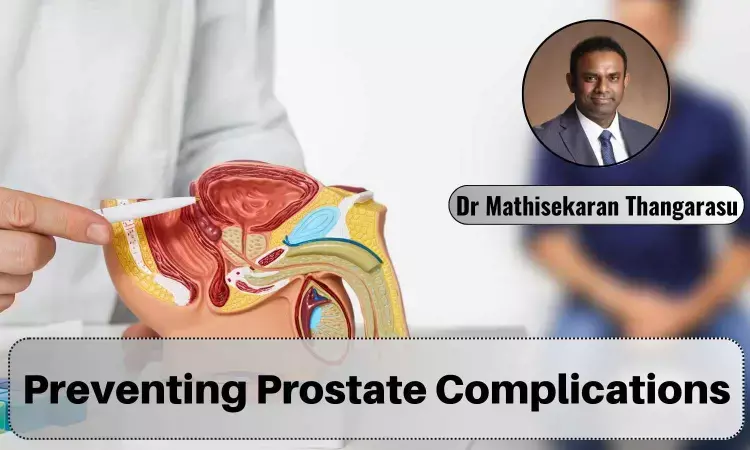- Home
- Medical news & Guidelines
- Anesthesiology
- Cardiology and CTVS
- Critical Care
- Dentistry
- Dermatology
- Diabetes and Endocrinology
- ENT
- Gastroenterology
- Medicine
- Nephrology
- Neurology
- Obstretics-Gynaecology
- Oncology
- Ophthalmology
- Orthopaedics
- Pediatrics-Neonatology
- Psychiatry
- Pulmonology
- Radiology
- Surgery
- Urology
- Laboratory Medicine
- Diet
- Nursing
- Paramedical
- Physiotherapy
- Health news
- Fact Check
- Bone Health Fact Check
- Brain Health Fact Check
- Cancer Related Fact Check
- Child Care Fact Check
- Dental and oral health fact check
- Diabetes and metabolic health fact check
- Diet and Nutrition Fact Check
- Eye and ENT Care Fact Check
- Fitness fact check
- Gut health fact check
- Heart health fact check
- Kidney health fact check
- Medical education fact check
- Men's health fact check
- Respiratory fact check
- Skin and hair care fact check
- Vaccine and Immunization fact check
- Women's health fact check
- AYUSH
- State News
- Andaman and Nicobar Islands
- Andhra Pradesh
- Arunachal Pradesh
- Assam
- Bihar
- Chandigarh
- Chattisgarh
- Dadra and Nagar Haveli
- Daman and Diu
- Delhi
- Goa
- Gujarat
- Haryana
- Himachal Pradesh
- Jammu & Kashmir
- Jharkhand
- Karnataka
- Kerala
- Ladakh
- Lakshadweep
- Madhya Pradesh
- Maharashtra
- Manipur
- Meghalaya
- Mizoram
- Nagaland
- Odisha
- Puducherry
- Punjab
- Rajasthan
- Sikkim
- Tamil Nadu
- Telangana
- Tripura
- Uttar Pradesh
- Uttrakhand
- West Bengal
- Medical Education
- Industry
Role Of Exercise And Healthy Lifestyle And Diet In Preventing Prostate Complications - Dr Mathisekaran Thangarasu

Prostate enlargement and other conditions that arise due to the prostate can have a significant effect on the quality of life.
Exercise, a healthy lifestyle, and a balanced diet can play crucial roles in preventing prostate complications. Here's how these factors contribute to prostate health, including the activities which help keep prostate enlargements and prostate cancer at bay.
Maintaining a Healthy Weight: Obesity and being overweight are linked to an increased risk of prostate complications, including prostate cancer and Benign Prostatic Hyperplasia (BPH). Regular exercise and a healthy diet help you achieve and maintain a healthy weight, reducing this risk.
Prostate Cancer Prevention
• Exercise: Regular physical activity can reduce the risk of developing any cancer and prostate cancer is not an exception. Exercise helps regulate hormones, boosts the immune system, and reduces inflammation, all of which may contribute to cancer prevention.
• Diet: A diet rich in fruits, vegetables, and whole grains, and a diet low in saturated fats may lower the risk of prostate cancer. Antioxidants, found in many fruits and vegetables, can help protect cells from damage that can lead to cancer. Tomatoes are a source of lycopene, a powerful antioxidant that may lower the risk of prostate cancer. Cooking tomatoes can increase the bioavailability of lycopene. High consumption of red meat and processed foods has been associated with an increased risk of prostate cancer. Limiting their intake is advisable.
• BPH Prevention: BPH is a non-cancerous enlargement of the prostate gland that can lead to urinary symptoms. Lifestyle changes such as avoiding being overweight and moderation in carbonated drinks, coffee and alcohol, help manage BPH and prevent complications.
• Regular Screening and Check-ups: Incorporating regular medical check-ups and prostate-specific antigen (PSA) screenings into your healthcare routine is essential, especially when there is history of prostate cancer in the family or in general above the age of 55 years. Early detection of prostate complications can lead to better treatment outcomes.
• Stress Reduction: Chronic stress can negatively impact prostate health. Engaging in stress-reduction techniques like meditation, deep breathing exercises, or yoga can be beneficial.
• Hydration: Staying well-hydrated is essential for overall health and can help with urinary symptoms associated with prostate complications.
• Limiting Alcohol and Smoking: Excessive alcohol consumption and smoking have been associated with an increased risk of prostate cancer. Reducing or eliminating these habits can be beneficial for prostate health.
• Omega-3 Fatty Acids: Some studies suggest that diets rich in omega-3 fatty acids, found in fish like salmon and walnuts, may have a protective effect against prostate cancer.
• Vitamins and Supplements: Some supplements, such as vitamin E and selenium, have been studied for their potential role in prostate cancer prevention, but the evidence is mixed, and taking excessive amounts may be harmful.
Preventive Screenings
While exercise, a healthy lifestyle, and a balanced diet can significantly reduce the risk of prostate complications, regular check-ups and screenings are essential. Men should discuss prostate-specific antigen (PSA) testing and digital rectal exams with their healthcare providers, especially if they have risk factors such as age, family history, or symptoms.
To summarise- exercise, a healthy lifestyle, and a balanced diet are integral components of preventing prostate complications. These proactive measures can help reduce the risk of prostate cancer and BPH, enhance overall well-being, and promote a better quality of life. Men of all ages should prioritize their prostate health by adopting these practices, seeking regular screenings, and consulting with healthcare professionals for personalized guidance. By taking these steps, individuals can empower themselves to lead healthier lives and reduce the burden of prostate complications in their later years.
Disclaimer: The views expressed in this article are of the author and not of Medical Dialogues. The Editorial/Content team of Medical Dialogues has not contributed to the writing/editing/packaging of this article.
Dr Mathisekaran Thangarasu MBBS, MS (General Surgery), DNB(Urology) is a Consultant Urologist at Asian Institute of Nephrology and Urology (AINU), Chennai with over 4 years of experience in the field of urology. He specialises in Endourology and Laser stone surgery, Renal Transplantation and Dialysis access surgery, Laparoscopic and minimally invasive Urology.


